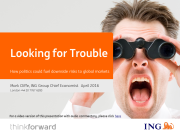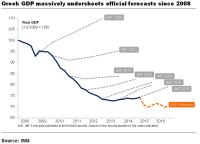
In my latest article, published in the May 2023 edition of The Actuary magazine, I argue that official climate scenarios, promoted as the de facto standard by the likes of the Network for Greening the Financial System (NGFS), are no longer fit for purpose.
Planet NGFS is a world without storms, floods, wildfires, droughts or rising sea levels; where the economic damage caused by global warming grows gradually, and, for a few decades at least, modestly. There are no pandemics, wars, policy errors, recessions, stock market crashes; no unemployment or banks. Markets work, rising carbon prices shift the world smoothly away from fossil fuels and carbon removal takes off.
This is the story, or fantasy, built into the integrated assessment models (IAMs) underpinning the climate risk scenarios of the NGFS, the International Energy Agency and others.
Thankfully there is growing awareness that standard climate narratives and models are missing crucial risks, tipping points and feedback loops, thereby understating the risks and opportunities. The disruptions flowing from Covid, the war in Ukraine, energy and supply chain dislocations, financial crises and extreme weather events have exposed the unreality of Planet NGFS. We need scenarios to embrace the fact that we are living on Planet VUCA: one characterised by volatility, uncertainty, complexity and ambiguity.
The Real World Climate Scenarios initiative, which I co-launched last year (with Mike Clark of Ario Advisory and Willemijn Verdegaal of Ortec Finance), is dedicated to addressing this. Given governments’ and businesses’ diverse needs, these scenarios must cover a greater variety of time horizons, scales and scopes – thus requiring a broader range of methods and models.
Now that the focus is on delivering net zero, transition planning is the priority. This means that the urgent need is for short-term scenarios focused not systemic risks but on the bespoke needs of both governments and business. Since global warming is a given on horizons of less than 10 years, the such scenarios are driven instead by the interaction of transition risks and extreme weather events.
Moreover, since the success of any organisation is contingent on the behaviour of others, bespoke scenarios need to acknowledge that organisations run risks not just in moving too slowly on decarbonisation, but also in moving too quickly.
The full article can be found here.










